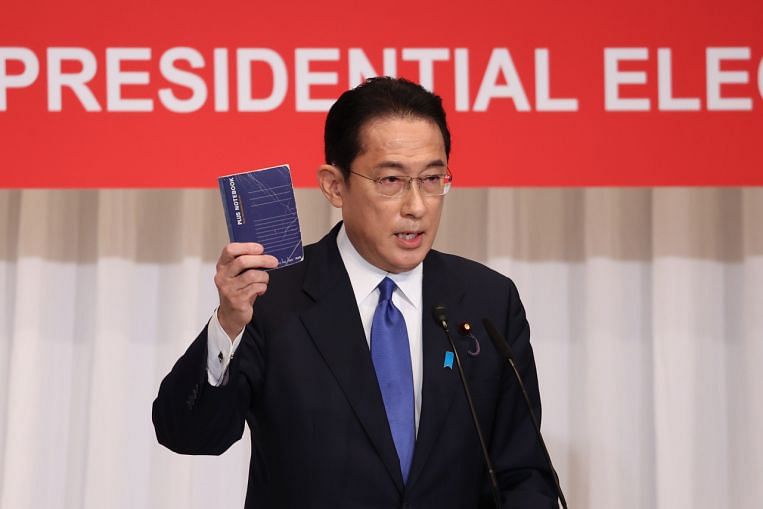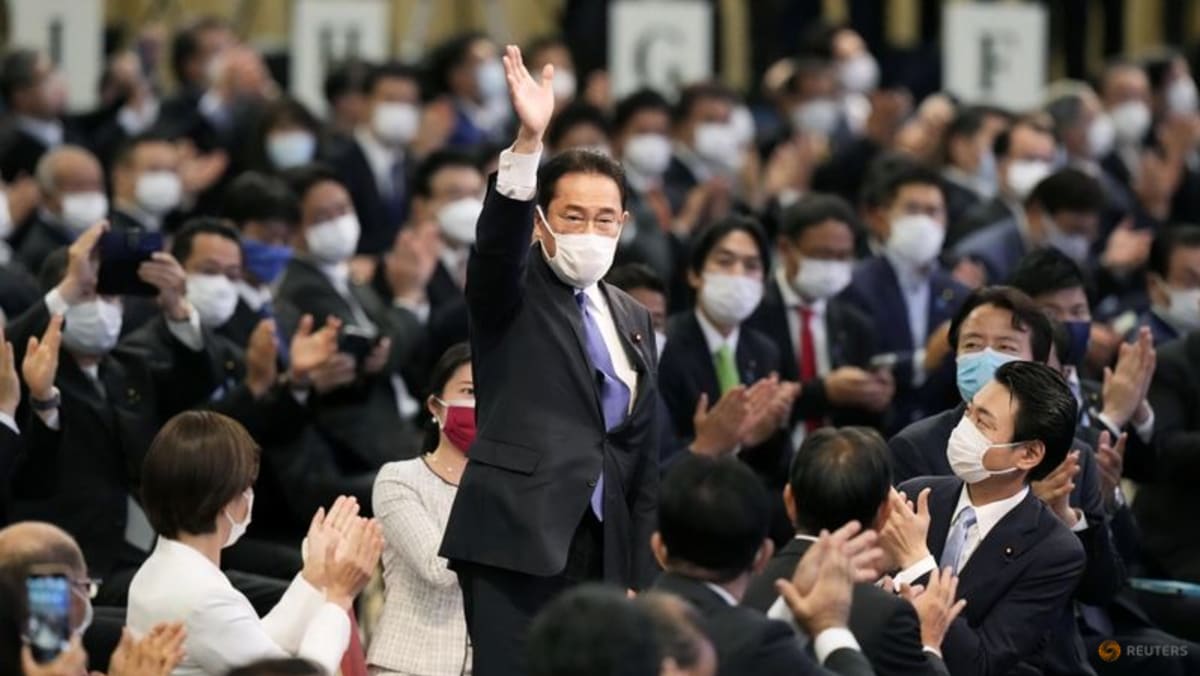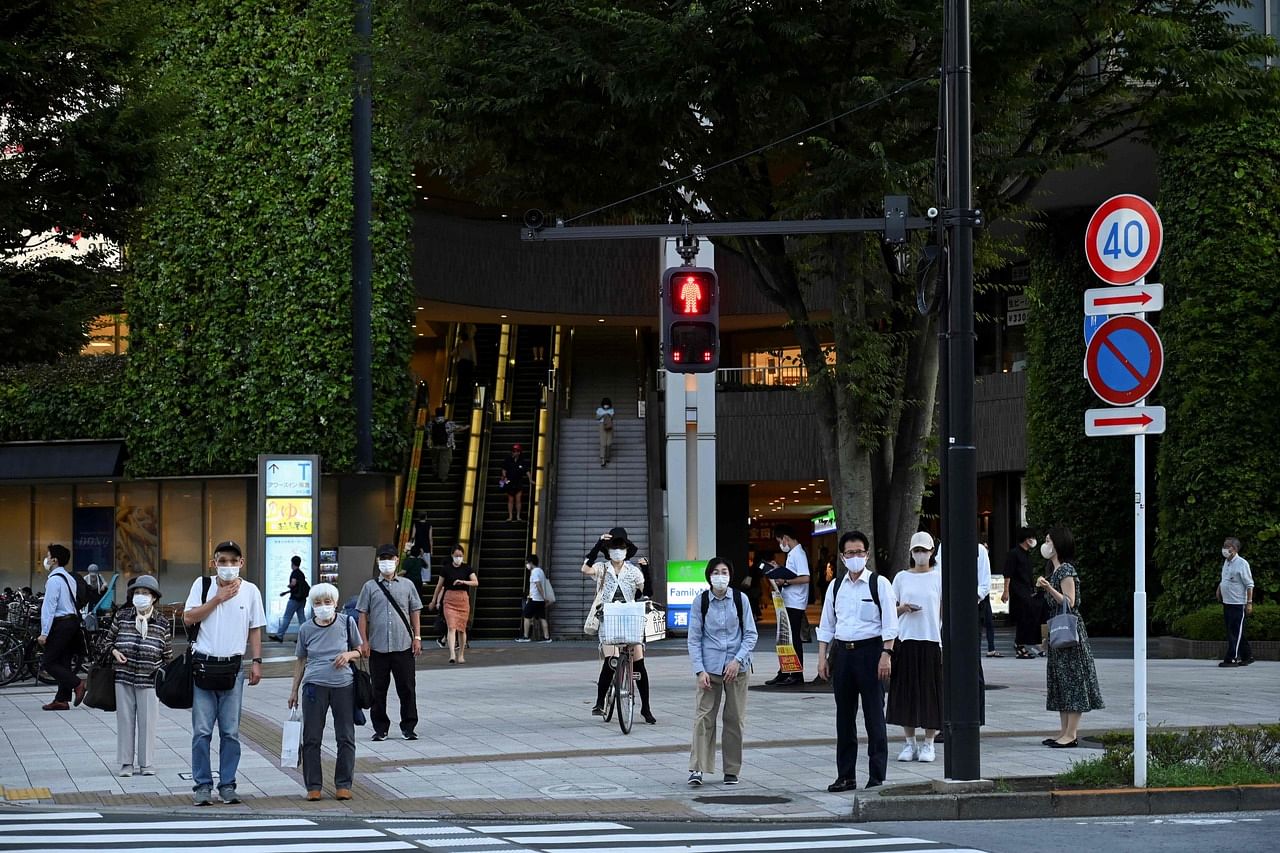SINGAPORE - Covid-19 vaccinations will now become a simpler, less tedious process for nurses, with the help of a machine that can automatically fill injection syringes.
The first of its kind in Singapore, the Automated Vaccine Inoculation Dispenser (Avid) system weighs less than 25kg and is able to fill six vaccine syringes in less than five minutes.
This innovative solution uses a combination of robotic parts, smart sensors and digital technologies.
The time taken for a nurse to manually fill six syringes varies, and is affected by factors like how experienced and how tired the nurse is.
The system reduces the workload of the nurses and removes the need for them to manually fill the syringes, allowing them to focus on caring and communicating with the people receiving the vaccines. It also reduces the possibility of human error, especially if the nurse is fatigued.
The machine is currently used to fill the Pfizer-BioNTech vaccine but can be customised to fill other vaccines.
Currently, Avid has been deployed at seven vaccination centres islandwide, with the first deployment at Senja-Cashew Community Club in early July. Thomson Medical operates the vaccination centre there.
Vaccination centres should be able to cater to at least 2,000 people a day, it was previously reported.
Avid was developed by researchers from the Agency for Science, Technology and Research's (A*Star) Advanced Remanufacturing and Technology Centre and Singapore Institute of Manufacturing Technology, in collaboration with local systems integrator Sysmatic Global.
The idea was first mooted by Deputy Prime Minister Heng Swee Keat, who challenged the team earlier this year to develop a solution to the tedious process.
A prototype was built in early July, six weeks after the idea was conceptualised. Thereafter, a production machine, which is more compact and cost-effective and had eliminated the teething problems the team earlier faced, was then built.
Some challenges included the fact that the syringes were not precisely identical and there could be slight variations in needle angle. Should the needle angle deviate too much, the system will not fill that syringe.
The team at Sysmatic Global also did not necessarily have a background in biomedical sciences.
Mr Khoo Kiak Nee, director of Sysmatic Global, said: "The A*Star team was very helpful and provided us with a lot of information very quickly. These are the things that we learn from them as a small and medium-sized enterprise, something which we would not have been able to do by ourselves."
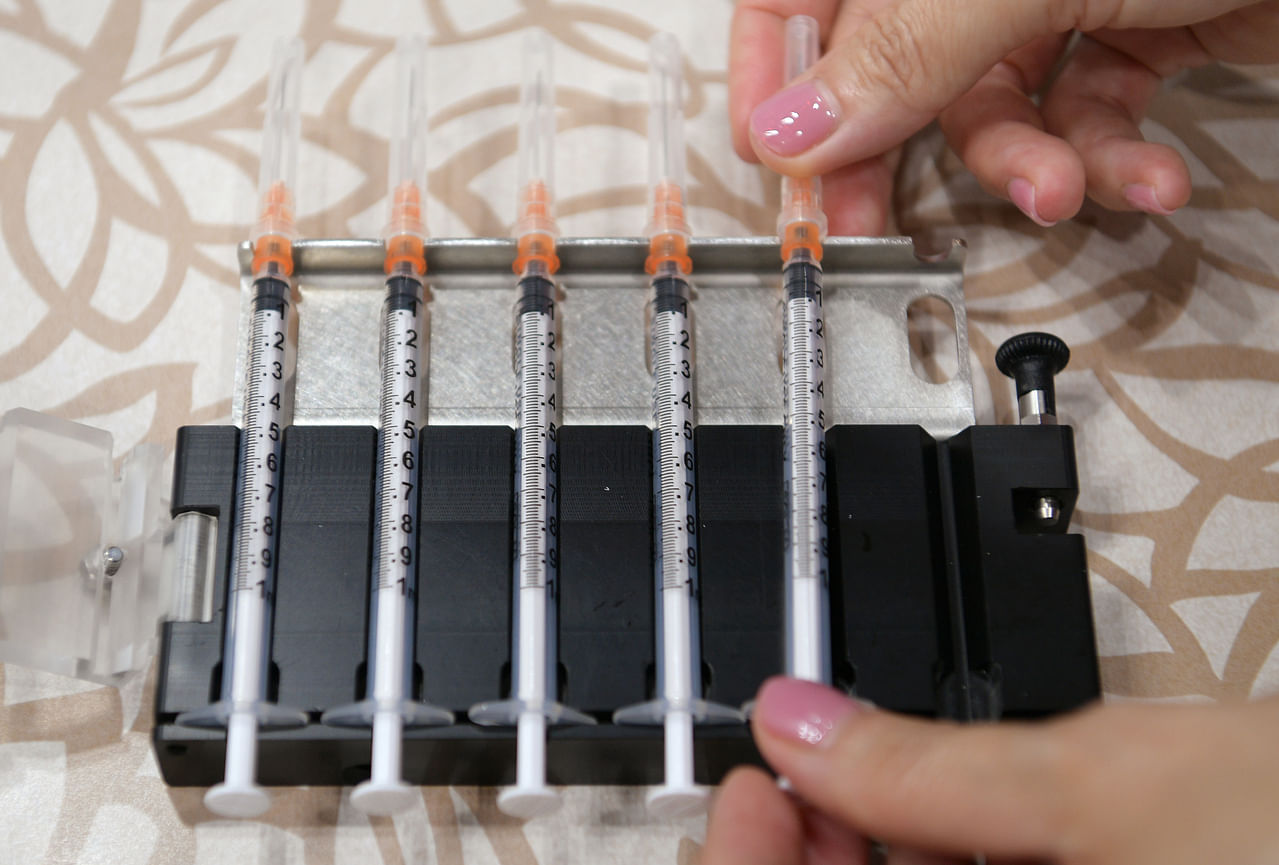
If needed, new machines can be quickly assembled, taking only about three to four weeks to build from scratch.
Dr David Low, chief executive officer of the Advanced Remanufacturing and Technology Centre, said: "After we developed the protoype, we worked with the Health Ministry, and Senja-Cashew CC was selected by (the ministry). We were very fortunate that the Thomson Medical team was very receptive."
He added: "One of the biggest challenges in rolling out automation is not the problem itself, but whether it will be accepted by the people, so we were quite worried at the start. Of course, there was initial concern from the nurses on issues such as whether the machine is safe, and we took all their feedback and incorporated it to make it user-friendly and cost-effective."
Nurses need only less than an hour to learn how to operate the machine, which uses a three-pin plug.
Similar prototypes have been built abroad, with one in Thailand costing around $100,000. The system built here is a few times cheaper.
The immediate focus for the team now is to make sure the seven Avid systems are stable, and to develop more systems if there is a call to expand deployment to other vaccination centres.
"That is our near-term focus - to make sure that Singapore's vaccination exercise is smooth, has sufficient capacity and our nurses are not overstressed, especially with booster shots coming up," Dr Low said.
"We would also not say no if there is an overseas request for Avid, and it will be good to help with the global vaccination exercise. That'll be our mid-term goal, if there is a call to export some of these machines."
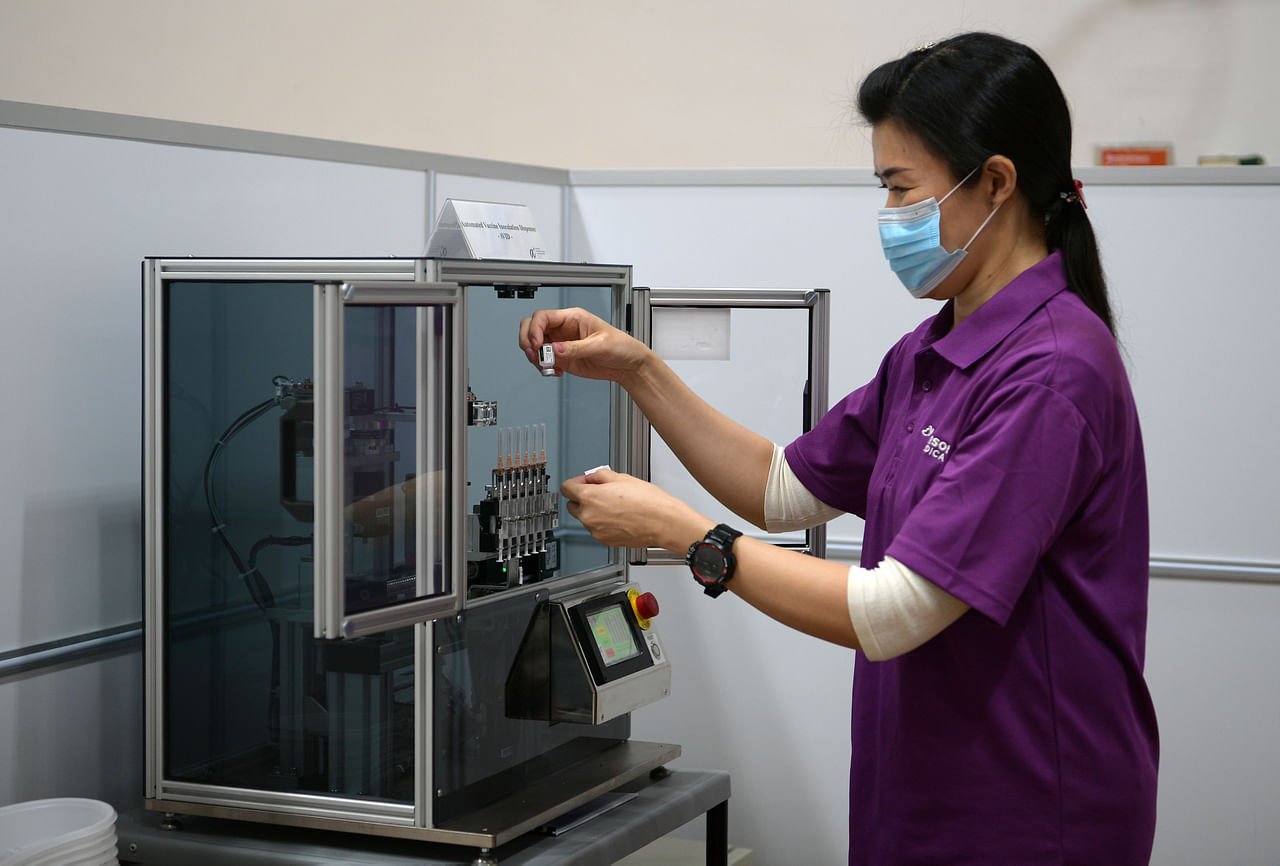
How the system works:
1. The empty syringes and diluted Pfizer-BioNTech vaccine is loaded into the machine.
Typically, nurses will have to extract individual doses of the vaccine (0.3ml for the Pfizer-BioNTech vaccine) using syringes. One vial contains six doses after dilution.
2. The nurse closes the door of the machine and presses the "start" button.
3. The Avid extracts the vaccine from the vial into the six syringes, tapping each syringe to get rid of the air bubbles trapped inside. It also automatically uncaps and recaps the syringes.
4. After the six syringes have been filled, the nurse removes them and does a visual check on each syringe to ensure it is correctly filled.
5. Pre-filled syringes can be prepared based on the number of bookings received that day.
6. There are two layers of visual checks. The first is done by the nurse operating the machine, and the second is done by the nurse at each station when a person is about to injected.
https://news.google.com/__i/rss/rd/articles/CBMigQFodHRwczovL3d3dy5zdHJhaXRzdGltZXMuY29tL3NpbmdhcG9yZS9uZXctbWFjaGluZS1hdXRvbWF0ZXMtZmlsbGluZy1vZi1jb3ZpZC0xOS12YWNjaW5lcy1pbnRvLXN5cmluZ2VzLWVhc2luZy13b3JrbG9hZC1vZi1udXJzZXPSAQA?oc=5
2021-09-30 06:12:52Z
CBMigQFodHRwczovL3d3dy5zdHJhaXRzdGltZXMuY29tL3NpbmdhcG9yZS9uZXctbWFjaGluZS1hdXRvbWF0ZXMtZmlsbGluZy1vZi1jb3ZpZC0xOS12YWNjaW5lcy1pbnRvLXN5cmluZ2VzLWVhc2luZy13b3JrbG9hZC1vZi1udXJzZXPSAQA

